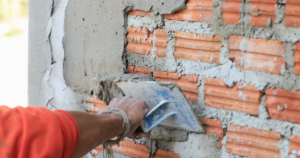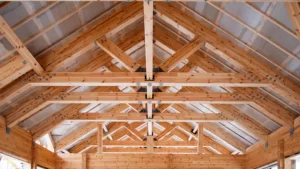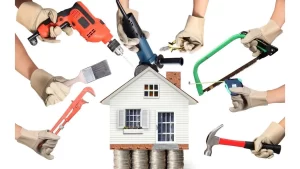JCL Home Improvements
& Off-The-Grid Solutions
We make maintenance, renovations and Off-the-Grid Solutions LOOK EASY!
Call or Whatsapp: (+27) 0741475101
Your One-Stop Home maintenance company
Home Renovations involve a wide range of changes and updates you can make to your home. The purpose of which is to improve the quality, style, and value of your home. Knowing what your renovation options are, what each step entails, and the costs involved can help you make an informed decision. Let us look at what those options are, their costs and some common mistakes you should avoid.
Here are a couple of our specialized services provided to the public as well as businesses alike.
Home Improvements
All your General home improvements needs.
Building & Plastering
Building and Plastering services. Extensions to existing structures, new structures, boundary walls and more…
Roofwork & Brandering
All types of Brandering and Roof work. New Installations, Refurbishment or Replacement of all wooden roofing structures, Faciaboards, ceiling boards & skirtings.
Painting
Painting services for the residential and commercial sectors. Interior as-well as exterior walls, boundary walls and roof surface.
Steelwork
All types of Steel Work such as burglar bars, fences, security doors, carports, corrugated and IBR metal roofing and more…
Off-the-Grid Solutions
We currently cover: Solar power systems; Wind power systems; Battery power/backup systems; Rain water systems; LPG Gas installations/conversions…
Get A Free Consultation & Estimate
We will provide you with an obligation free quote/estimate for any of our services. Simply enter your details below with your requirements and we will contact you as soon as humanly possible.
Featured Projects
Here at JCL We are proud of our workmanship. Here are some of our featured projects for you to see what we are about and the quality of our work…
General home improvements …

Painting services for the residential and commercial sectors. Interior as-well as exterior walls, boundary walls and roof surfaces …

For the residential and commercial sectors. Interior as-well as exterior walls, boundary walls and roof surface …

All types of Steel Work such as burglar bars, fences, security doors, carports, corrugated and IBR metal roofing and more …

All types of Brandering and Roof work. New Installations, Refurbishment or Replacement of all wooden roofing structures, Faciaboards, ceiling boards & skirtings

“Off the Grid (OTG)”, do not rely on municipal water supply, sewer, electrical power grid, or similar utility services…We currently cover: > Solar power systems > Wind power systems > Battery power/backup systems > Rain water systems > Gas installations/conversions.
Frequently Asked Questions
What do Home Renovations entail?
A renovation is defined as the process of repairing, restoring, and uplifting the state of something (like a house or a building). Renovations are usually done on outdated, run-down, or damaged houses but are by no means reserved only for that. You can renovate your house at any point and for any reason. While some may renovate to handle damp or structural issues, others may renovate to breathe new life into an area. There are many benefits to renovating your home.
Home renovations are more than just attending to mere maintenance issues which keep the home in a decent condition. Home renovations involve taking what you currently have and either adding onto it, (make the space bigger) or making it better. You can update an old kitchen, a tired bathroom, or simply improve the layout to better use of space.
Why Renovate?
The main benefit of renovating is that you get to customize and choose the changes yourself. You can add onto your current house to make space for a new child or grandparents. It would be cheaper to add a 4th bedroom onto your already existing 3-bedroom house than trying to sell your current house, find and buy a 4-bedroom house. By renovating you are passively investing your money into an asset you own. Besides the cost implications, renovating adds value to your house. By upgrading to more modern finishes, you would fetch a better selling price on your house than before. Best of all, renovating gives you the opportunity to install energy efficient solutions which will have a substantial effect on your monthly utility bills.
Renovation vs Maintenance?
Which renovation would add the most value to a home?
Adding a new kitchen, bathroom, or the addition of a new space all increase the value of your property. An important thing to remember when renovating is to ensure that your plans do not overcapitalise the property in relation to the area you are in. The balance would be to ensure that your renovation plans, and the costs thereof do not increase the value of your house to the point that selling at a profit is not possible. When in doubt, it is best to chat to a trusted estate agent who knows the area. They will be able to give you a valuation for properties in your area and guide you in terms of the investment value you should look at making.
What goes into home renovations?
Common mistakes to avoid when renovating?
Have a differint Question?
Testimonials
Excellent work done
It is not often that contract work gets done timeously, finished off completely and dealt with professionally.
You excelled in all our expectations and we will gladly recommend you to our friends or anybody that would like work done in and around their homes.
Kind regards”
Patric
No Hasle
“I would like to recommend Johan from JCL-Group and Off-the-Grid Solutons.
He renovated our bathrooms over a year ago. We recently had a small, minor problem and I called him.
He came out to fix it without hesitation. He is absolutely professional and totally reliable. A complete pleasure to deal with!
If you need any further information you can call me”
Ivan
“We are very pleased with our new kitchen! The whole process from stripping out the old kitchen, to new plumbing and electrical points, new kitchen units and tiling went very smoothly and we didn’t encounter any of the major stresses usually associated with renovations.
We can definitely recommend JCL’s services to any prospective clients!
Kind Regards”
Annastasia
Painless experience
“We recently had our bathroom redone. It was an entirely painless experience. The job was done quickly and neatly.
Johan was completely approachable, and the only person we needed to communicate with throughout the process.
There were absolutely no hidden costs, so no nasty surprises along the way. Most importantly we are very happy with the final product!
We would really recommend JCL-Group as a service provider.
They have loads of experience, reliably employees
Kind regards”
Stefan
Why Choose US
Customer Focus
We’re focused on customer experience and driven by your needs.
A One-Stop Shop
Get it right from the start
As part of our service we take the time to listen and understand your lifestyle needs and you will be amazed with the quality and workmanship that we offer.

